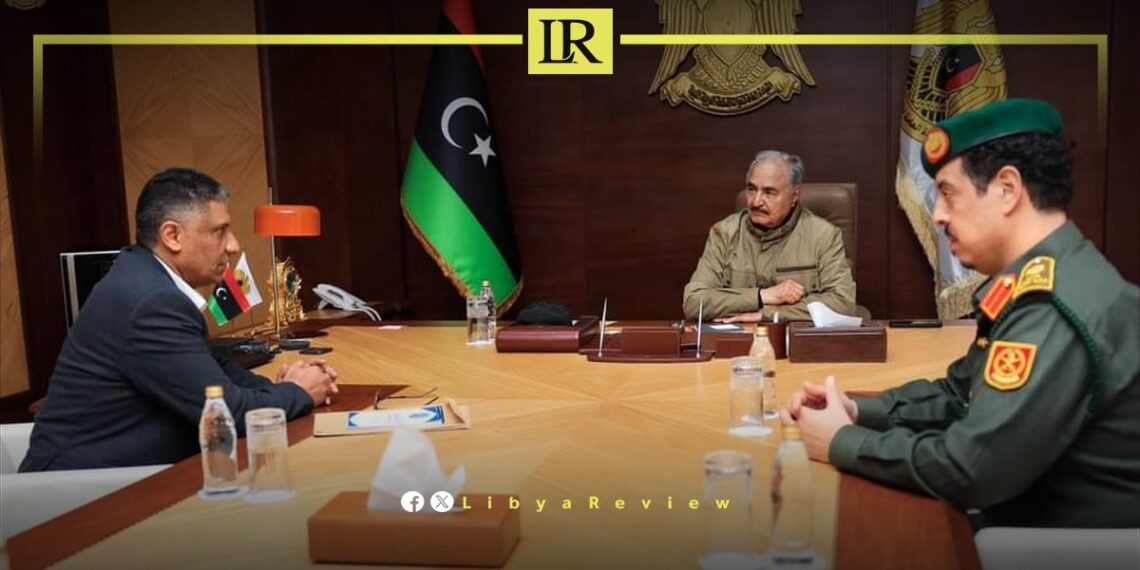On Monday, Field Marshal Khalifa Haftar, General Commander of the Libyan National Army, held discussions aimed at addressing the depreciation of the Libyan dinar against foreign currencies.
In a meeting with Adam Bousskhra, a member of the House of Representatives Committee on Planning, Finance, and General Budget, Haftar highlighted the need for economic policies that safeguard the well-being of Libyan citizens. He called for measures to ensure the availability of basic necessities amid ongoing economic reforms.
This effort is in line with a policy initiated by Ageela Saleh, the Speaker of the House of Representatives, who approved a 27% exchange rate fee on foreign currency transactions, set to last until the end of 2024. The policy, proposed by Al Saddik al-Kabir, Governor of the Central Bank of Libya, is designed to mitigate the dinar’s depreciation and promote economic stability.
Decree No. 15 of 2024 introduces an additional 27% fee to the exchange rate, subject to adjustment based on Libya’s fiscal performance. The decree gives the Central Bank’s Governor the authority to adjust the rates at which foreign currency is sold, ensuring its availability in Libyan banks.
Libya has faced challenges in achieving economic stability since the overthrow of Muammar Gaddafi in 2011, dealing with political division, conflict, and economic challenges.
The country’s economic difficulties are further complicated by disruptions in oil production, its main source of income, due to conflicts and damage to infrastructure. Additionally, the absence of a cohesive national strategy to address inflation and manage public finances has impeded recovery efforts.
Since 2014, Libya has been split between two rival administrations in the East and West, with key economic institutions under divided control. Nonetheless, a political agreement reached in 2015 requires the House of Representatives in Eastern Libya and the High Council of State in Tripoli, Western Libya, to collaborate on major national issues.


